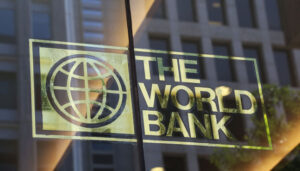The Gambia’s economy has continued on a path of recovery, with real GDP growth reaching 5.7% in 2024, according to the World Bank’s Fifth Economic Update for the country.
The report credits the performance to gains in the services sector, stronger investment, and easing inflation, despite persistent global and domestic challenges.
The update notes that household consumption improved during the year, helping to reduce extreme poverty. This was driven by rising labor incomes, remittance inflows, and a moderation in prices following tighter monetary policy and declining global commodity costs. The Central Bank of The Gambia kept its policy rate at 17% to stabilize inflation and protect household purchasing power.
“The sustained improvement in The Gambia’s economic performance is a testament to the country’s ongoing efforts to strengthen macroeconomic management and stimulate domestic demand,” said Franklin Mutahakana, World Bank Group Resident Representative for The Gambia. “The expansion in services, coupled with increased investment and consumption, and a moderation in inflation, have all contributed to this positive trajectory.”
Public and private investment also played a role in the country’s growth. At the same time, stronger domestic revenue collection has supported a gradual reduction in public debt. However, debt levels remain high at 71.2% of GDP, leaving the economy exposed to fiscal risks.
Ephrem Niyongabo, World Bank Economist for The Gambia and lead author of the report, stressed the need for discipline in managing the country’s debt. “To sustain this momentum, it is important to continue strengthening public debt management. Maintaining debt at sustainable levels through sound fiscal policies will help ensure that public borrowing supports development priorities without compromising long-term economic stability,” he said.

Looking ahead, the World Bank projects that The Gambia’s economy will grow at an average of 5.6% through 2027, supported by broad-based sectoral activity and a continued commitment to fiscal and macroeconomic stability. Still, the report warns that structural bottlenecks and external shocks remain key risks to the outlook.
The update calls for reforms aimed at reducing regional inequalities, expanding access to essential services, and investing in infrastructure to ensure growth is inclusive and benefits the most vulnerable populations.





